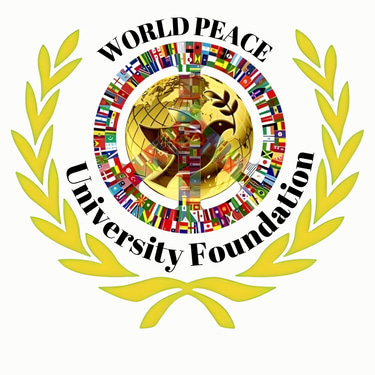The Impact and Significance of the United Nations' Peacebuilding Initiatives
4/23/20243 min read


Introduction
Conflict zones around the world are plagued by violence, instability, and suffering. In an effort to address these challenges and promote peace, the United Nations (UN) has implemented various peacebuilding initiatives. These initiatives aim to facilitate the transition from conflict zones to peaceful communities, fostering stability, reconciliation, and sustainable development. This blog post will explore the impact of the UN's peacebuilding initiatives and highlight their significance in creating lasting peace.
The Role of the United Nations in Peacebuilding
The United Nations plays a crucial role in peacebuilding efforts globally. Through its specialized agencies, such as the United Nations Development Programme (UNDP) and the United Nations Peacebuilding Commission (PBC), the UN provides support to countries affected by conflict. These agencies work collaboratively with governments, civil society organizations, and local communities to address the root causes of conflicts and promote peace.
One of the key aspects of the UN's peacebuilding initiatives is the emphasis on inclusivity and participation. The UN recognizes the importance of involving all stakeholders, including women, youth, and marginalized groups, in decision-making processes. By ensuring the voices of these groups are heard, the UN aims to create more inclusive and sustainable peacebuilding strategies.
Building Peace through Conflict Prevention
Preventing conflicts from escalating into violence is a fundamental aspect of the UN's peacebuilding efforts. The UN works closely with governments and local communities to identify and address the underlying causes of conflicts before they erupt. By addressing issues such as inequality, poverty, and political instability, the UN aims to create the conditions necessary for lasting peace.
One example of the UN's conflict prevention initiatives is the early warning and response system. This system enables the timely identification of potential conflicts and allows for swift intervention to prevent violence. By utilizing data analysis and on-the-ground monitoring, the UN can proactively address tensions and promote peaceful resolutions.
Post-Conflict Reconstruction and Development
After a conflict has ended, the process of post-conflict reconstruction and development becomes crucial in ensuring sustainable peace. The UN plays a vital role in supporting countries in this phase, providing assistance in rebuilding infrastructure, revitalizing economies, and promoting social cohesion.
Through its peacebuilding initiatives, the UN helps countries establish effective governance systems, strengthen the rule of law, and promote human rights. By addressing the root causes of the conflict and promoting inclusive development, the UN aims to prevent the recurrence of violence and promote long-term stability.
Local Ownership and Capacity Building
The success of peacebuilding initiatives heavily relies on the active participation and ownership of local communities. The UN recognizes the importance of empowering local actors and institutions to drive sustainable change.
Capacity building is a central component of the UN's peacebuilding efforts. By providing training and resources to local governments, civil society organizations, and community leaders, the UN enhances their ability to address conflicts, promote dialogue, and facilitate reconciliation. This approach ensures that the peacebuilding process is driven by the needs and aspirations of the affected communities, leading to more sustainable and effective outcomes.
Measuring the Impact of Peacebuilding Initiatives
Assessing the impact of peacebuilding initiatives is a complex task. While the tangible outcomes, such as reduced violence and improved infrastructure, are important indicators of success, the true impact of peacebuilding goes beyond these visible changes.
The UN employs various monitoring and evaluation mechanisms to measure the effectiveness of its peacebuilding initiatives. These mechanisms involve collecting data, conducting surveys, and engaging with local communities to understand their perceptions and experiences. By gathering this information, the UN can make informed decisions, adjust strategies if necessary, and ensure that the peacebuilding efforts align with the needs of the communities they serve.
Conclusion
The United Nations' peacebuilding initiatives have a significant impact on transforming conflict zones into peaceful communities. Through conflict prevention, post-conflict reconstruction, and capacity building, the UN promotes sustainable peace and development. By involving all stakeholders, including marginalized groups, the UN ensures that the peacebuilding process is inclusive and participatory. While measuring the impact of peacebuilding is challenging, the UN's monitoring and evaluation mechanisms help assess the effectiveness of these initiatives and make informed decisions for the future. As conflicts continue to threaten global stability, the UN's peacebuilding efforts remain crucial in creating a more peaceful and prosperous world.
Connect
Email : info@wpufoundation.org
Follow
Stay Connected with Us
+1 (564)243 9111
World Peace University Foundation is 501(c)(3) nonprofit organization EIN - 99-1863511, All donation is tax dedcutable as federal govt rule. ©2024 WPU-F. All rights reserved.
Address
424 W. Bakerview Road, Ste 105-2056
Bellingham, WA 98226 United States
